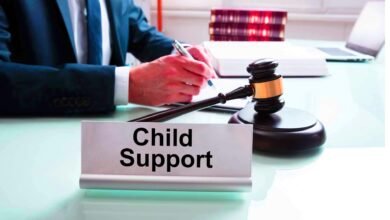How to Keep Your Family Safe: Know Your Legal Rights and Duties

Ensuring the safety of our families is a fundamental responsibility. However, in today’s complex society, it’s not enough to simply want safety; we must also understand the legal framework surrounding family safety. This article aims to delve into the importance of knowing and exercising legal rights and duties to keep your family safe.
Importance of Knowing Your Legal Rights and Duties
Having a clear understanding of legal rights and duties empowers individuals to protect their families effectively. It enables informed decision-making and appropriate action when faced with challenging situations. By knowing their rights, individuals can navigate legal processes confidently and seek necessary assistance to ensure their family’s well-being.
Legal Rights and Duties in Family Safety
Understanding Legal Rights in Family Safety
As a family member, you have inherent rights granted by law to ensure the safety and well-being of your loved ones. These rights encompass various aspects, including protection from harm, access to legal remedies, and the right to seek assistance from law enforcement agencies and legal professionals.
Legal Duties for Ensuring Family Safety
Alongside rights, individuals also bear legal duties in safeguarding their families. These duties often involve taking proactive measures to prevent harm, complying with relevant laws and regulations, and cooperating with authorities in investigations related to family safety.
Common Legal Issues Related to Family Safety
Domestic Violence and Protection Orders
Domestic violence poses a significant threat to family safety. Understanding the legal implications of domestic violence and obtaining protection orders when necessary are crucial steps in safeguarding against such threats.
Child Custody and Visitation Rights
In cases of separation or divorce, issues related to child custody and visitation rights can impact family safety. Knowing your legal rights and responsibilities as a parent is essential for advocating for your child’s best interests and ensuring their safety.
Child Abuse and Neglect Laws
Child abuse and neglect are serious offenses that require immediate intervention to protect vulnerable children. Familiarizing yourself with child abuse and neglect laws, reporting suspicions of abuse, and supporting victims are vital steps in addressing these issues within the family.
Read More: Bankruptcy and Child Custody: Legal Ramifications
Steps to Protect Your Family Legally
Educating Yourself about Relevant Laws
Take the initiative to educate yourself about laws and regulations about family safety in your jurisdiction. This includes familiarizing yourself with local statutes, seeking guidance from legal professionals, and staying informed about your rights and duties.
Seeking Legal Assistance
If faced with legal challenges or concerns regarding family safety, do not hesitate to seek assistance from qualified legal professionals. Whether it’s consulting with a family law attorney, contacting legal aid organizations, or reaching out to local law enforcement agencies, accessing legal support is essential for addressing complex legal issues effectively.
Creating Family Safety Plans
Developing comprehensive safety plans tailored to your family’s specific needs can help mitigate risks and ensure preparedness in emergencies. These plans may include strategies for preventing potential threats, establishing communication protocols, and identifying resources for support and assistance.
Resources for Legal Support in Family Safety
Local Law Enforcement Agencies
Law enforcement agencies play a crucial role in ensuring public safety and addressing concerns related to family violence and abuse. Contact your local police department or sheriff’s office to report incidents of violence, seek protection orders, or access support services for victims.
Legal Aid Organizations
Legal aid organizations offer free or low-cost legal assistance to individuals who may not afford private attorneys. These organizations provide valuable resources and advocacy services for individuals facing legal challenges, including those related to family safety.
Family Law Attorneys
Consulting with a qualified family law attorney can provide invaluable guidance and representation in matters concerning family safety. Whether it’s navigating divorce proceedings, securing protective orders, or addressing child custody issues, a skilled attorney can advocate for your rights and interests.
Read More: The Impact of Immigration Policies on Economic Growth
Conclusion: Empowering Families Through Legal Knowledge
In conclusion, knowledge of legal rights and duties is essential for safeguarding your family’s safety and well-being. By understanding relevant laws, seeking appropriate legal assistance, and taking proactive measures, you can create a secure environment where your loved ones can thrive.
FAQs
How can I protect my family from domestic violence?
Familiarize yourself with local laws on domestic violence, seek a protection order if necessary, and reach out to local law enforcement or domestic violence support services for assistance.
What should I do if I suspect child abuse or neglect within my family?
Report your suspicions to the appropriate authorities, such as child protective services or law enforcement, and provide any relevant information or evidence to support your concerns.
Are there legal resources available for families with limited financial means?
Yes, legal aid organizations offer free or low-cost legal assistance to individuals facing family-related legal issues, including those involving safety concerns.
How can I ensure that my family safety plan is effective?
Regularly review and update your family safety plan to address changing circumstances or emerging threats, and communicate the plan with all family members to ensure everyone is prepared and informed.
Where can I find more information about my legal rights and duties as a family member?
You can consult with family law attorneys, access online legal resources, or reach out to local legal aid organizations for guidance and information tailored to your specific situation.











